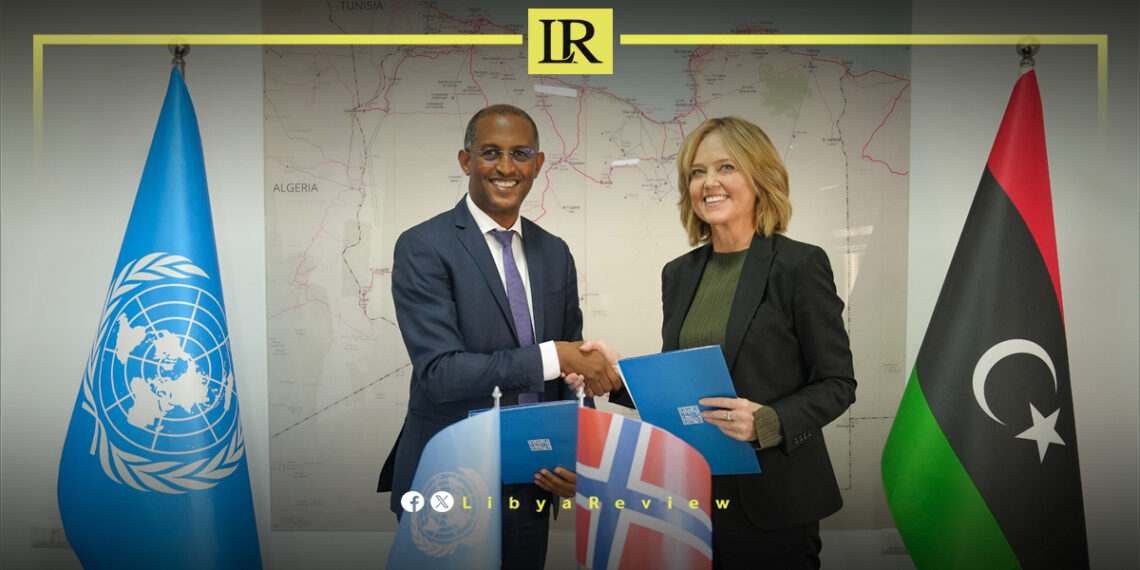On Thursday, the Government of Norway announced a significant boost to the United Nations Development Programme’s (UNDP) peacebuilding initiatives in southern Libya, pledging an additional $380,000 (4 million NOK).
This expanded funding, which supplements Norway’s initial contribution of $1.4 million, aims to tackle longstanding challenges in Libya’s south, where communities have struggled with high costs of living, limited services, and few economic opportunities.
This strategic partnership between Norway and UNDP marks a vital investment in Libya’s stability by prioritizing sustainable, community-led development in conflict-affected areas.
Southern Libya has been disproportionately impacted by years of conflict, leading to an urgent need for durable solutions that address not only immediate needs but also the deeper, systemic issues of underdevelopment and social cohesion.
In response, UNDP has rolled out a Local Peacebuilding and Resilience Strategy focused on three key municipalities: Al Sharguiya, Bint Baya, and Gurda Ashati. This approach aims to shift from short-term stabilization to longer-term strategies that empower local communities to drive their own development and peace initiatives.
UNDP’s efforts in these municipalities have already started to yield results, including stronger local governance structures and opportunities for economic growth. Norway’s additional funding will extend these initiatives to reach an estimated 30,000 people, including internally displaced individuals and those living with disabilities.
A key component of this strategy is prioritizing support for women and youth, who are often the most affected by the economic hardships and instability in the region.
During a signing ceremony marking this renewed commitment, Norway’s Ambassador to Libya, H.E. Ms. Hilde Klemetsdal, underscored Norway’s focus on a “bottom-up” approach to peacebuilding in Libya.
“We are very happy to partner with UNDP, especially in Libya, where we are supporting a community-centered approach to peacebuilding and development in South Libya,” she remarked. Her statement highlighted Norway’s commitment to fostering resilience from within Libyan communities, rather than relying solely on top-down interventions.
Mr. Mohammed Salih, Deputy Resident Representative for UNDP Libya, expressed gratitude for Norway’s continued support, noting the measurable impact on the ground in the southern municipalities. “Thanks to our longstanding partnership with Norway, we have been able to make a positive impact in Southern municipalities,” Salih said. “We look forward to expanding our collaborative efforts to support local authorities in maintaining momentum and sustainability in local peacebuilding efforts.”
Since 2017, UNDP has worked with Libyan national and local authorities to enhance resilience and stability through a combination of economic development and social cohesion initiatives.


